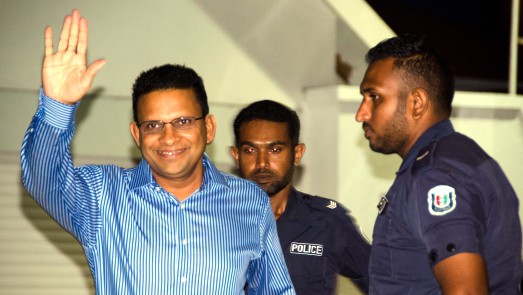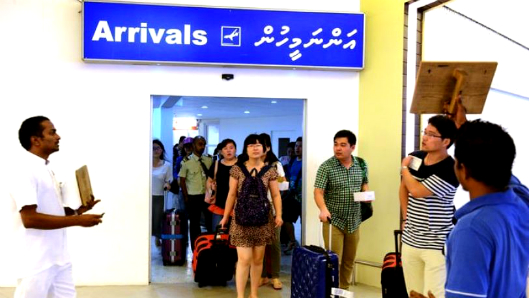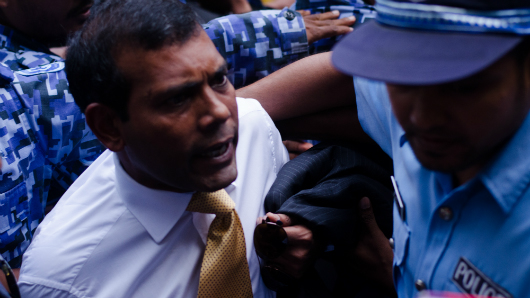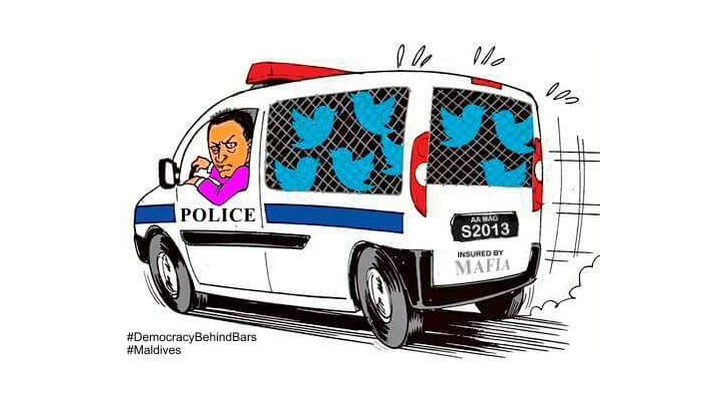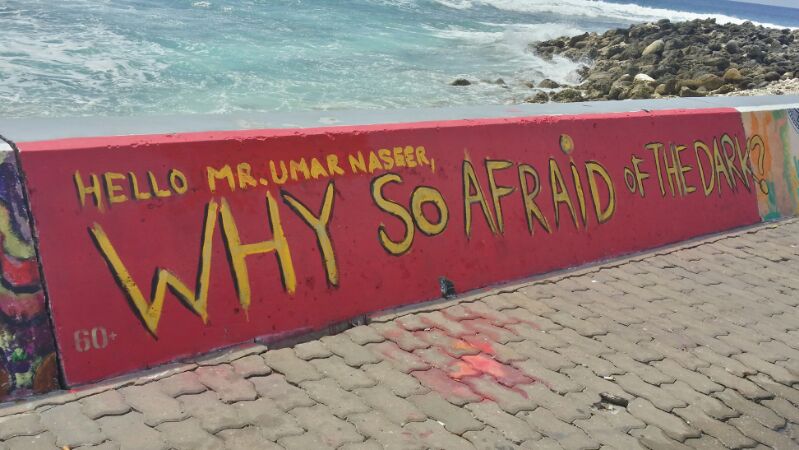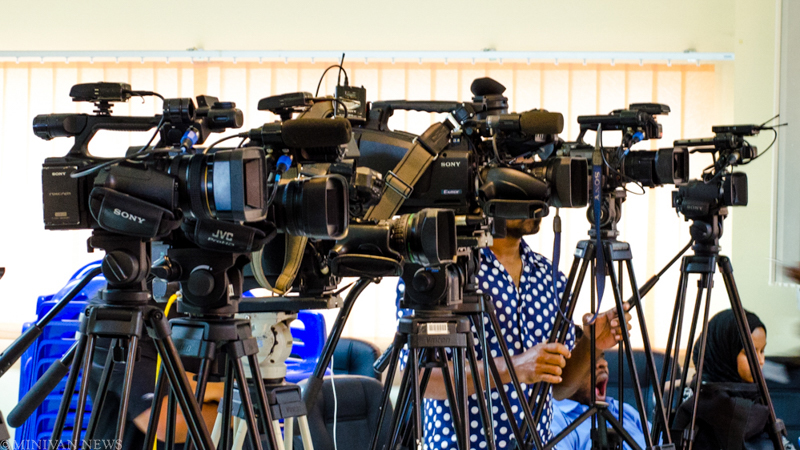Former president Mohamed Nasheed can still appeal a 13-year terrorism conviction at the High Court despite the end of the 10-day appeal period, the court says.
However, Nasheed’s lawyers say they believe they have no legal route through which to launch an appeal, and the ex-leader’s only hope for release is a clemency procedure initiated by the president.
The legal team says Nasheed is seeking a political solution involving President Abdulla Yameen, saying he has no faith in the judicial system to treat his case fairly.
Nasheed’s conviction last month was met with outrage from the opposition, which has been holding daily protests, while his trial was heavily criticised by several international bodies.
Late appeals
High Court judges are authorized to accept a late appeal if a “reasonable justification” is given, court media official Ameen Faisal said.
These include the lower court’s failure to provide detailed reports into court proceedings on time, as had happened in Nasheed’s case.
However, a lawyer on Nasheed’s team says there is no legal avenue to file an appeal, because the Supreme Court has removed the High Court’s discretionary power to accept late appeals.
This change was made in the same January ruling that shortened a 90-day appeal period to 10 days, shortly before Nasheed’s trial.
Only President Abdulla Yameen can now resolve the impasse, Nasheed’s lawyer Ibrahim Riffath said. The president can reduce Nasheed’s sentence through special powers granted in the Clemency Act.
In January, the Supreme Court voided Article 42 of the Judicature Act which set out appeal deadlines and gave judges discretionary powers in accepting late appeals.
The 90–180 day appeal period obstructed justice, the Supreme Court said. A new 10-day appeal period was set out, but the apex court was silent on procedures for late appeals.
Riffath said the High Court must now seek the Supreme Court’s instruction before accepting an appeal.
Political solution?
In any case, Nasheed’s team on March 19 announced that the former president desired a political solution and would not seek an appeal, stating he had no faith in the judiciary.
His lawyers believe such an appeal would inevitably fail, because they do not believe the High Court judges to be independent.
Six of the nine High Court judges are to be relocated to two new High Court branches with reduced powers in the north and south. The government-controlled judicial watchdog has not yet decided which judges will be relocated, and the threat of this demotion has silenced the judges, Nasheed’s lawyers believe.
President’s spokesperson Ibrahim Muaz Ali last week suggested President Yameen could consider granting a pardon if Nasheed asked for it, saying the office had not received a letter yet.
But Riffath said the normal clemency procedures do not apply in Nasheed’s case, as the president cannot pardon offences relating to terrorism. However, the president on his own initiative could reduce sentences or postpone them indefinitely under special procedures listed in Article 29 of the Clemency Act.
Article 29 states that the president can reduce sentences depending on the age, health or special circumstances of the convict.
Yameen has so far insisted that the court process is independent from his government and that he is not personally involved.
Daily protests are ongoing across the Maldives, and opposition leaders last Thursday reiterated calls for President Yameen to initiate talks.
The government last week stripped Nasheed of membership of the main opposition Maldivian Democratic Party, by using its parliamentary majority to pass a law banning prisoners from political party membership.
Separately, the ruling PPM has also submitted an amendment to the law on privileges for former presidents stripping any president who resigned – as Nasheed did, although he said it was under duress – from army protection and financial privileges.
Nasheed was convicted in a trial condemned by the UN, Amnesty International and the EU, US and UK over lack of due process. Amnesty called the trial a travesty of justice, while the UN said it made a mockery of the constitution and international treaties.

